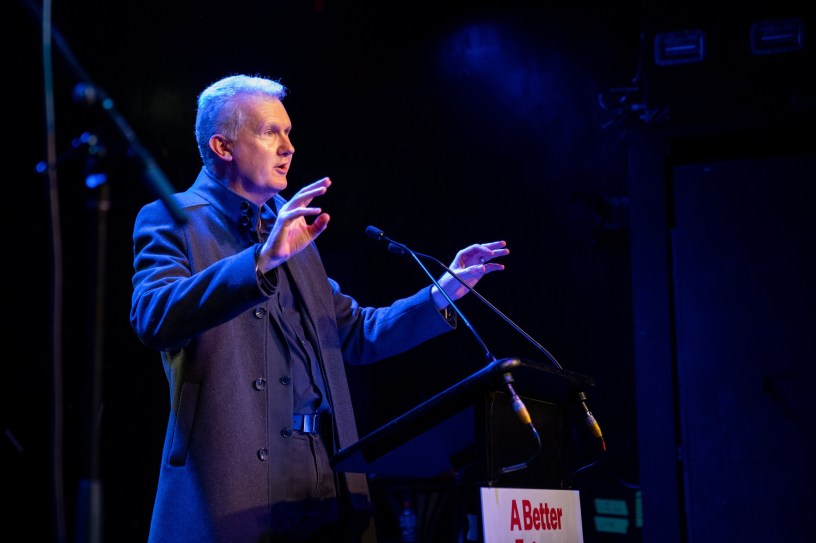Arts Minister Tony Burke hopes to answer the question of how best to regulate streaming services before the end of this year as he ramps up consultation on the government’s National Cultural Policy.
Minister Burke is in the midst of developing a new strategy for the arts sector, inviting submissions via a newly-launched website, while also revealing plans to conduct a series of town hall meetings in every state and territory, the first of which was in Hobart on July 6.
This week he travels to Sydney and Brisbane before heading to Melbourne, Adelaide, and Perth in August.
It comes after the election of a Labor government in May, with the party vowing to bring new “drive, direction and vision” to the creative industries.
Sections of the screen industry are hoping they can deliver on their promise of SVOD regulation sooner rather than later, after going back and forth with the previous government throughout the past three years via the media reform green paper and the subsequent Streaming Services Reporting and Investment Scheme.
Speaking to IF, Burke said he was “very interested” in expanding the quota system to the streaming services and aimed to make a decision before the end of the year as part of the National Cultural Policy rollout, arguing that it came down to a “principal relationship” between the Australian viewer and the screen.
“I want to work through how we make sure that we still have a reasonable amount of children’s production happening and I also want to make sure that we have two separate commercial principles in mind,” he said.
“One is the destination point of where we want quotas to get to, and the other is the starting point from which we build them up.”
Among sections of the industry there are concerns of a production void stemming from the delay between the government’s relaxation of local content quotas for commercial free-to-air broadcasters and imposition of obligations on streamers.
Screen Producers Australia and other industry guilds have repeatedly called for a 20 per cent expenditure requirement for SVOD services, as well as genre sub-quotas for drama, children’s television, First Nations content, and documentary.
The need for action was reiterated at this year’s Screen Forever conference, where SPA CEO Matthew Deaner used his opening address to slam the Liberal government for “slow, protracted and largely ineffective proposals”, which he said had caused a sharp decline in the amount of drama made for commercial free-to-air television while having a devastating impact children’s content.
Burke, who claims to have first raised the issue publicly with the industry when he was Arts Minister in 2013, acknowledged that “delay was not on our side” when it came to imposing new measures, but also warned there was no easy fix.
“This is the price of having nine years of a government without a cultural policy,” he said.
“I can’t pretend the last nine years didn’t happen; they did and they hurt people.
“There will be some businesses that have been hurt badly by that, but my job is to try to make sure that I can get a policy landing soon and start to chart the path forward again.”
The new Arts Minister was given the opportunity to outline his vision for the screen sector at the re-launch of the Make It Australian campaign last month, which he attended alongside Communications Minister Michelle Rowland.
He used his address to emphasise his opposition to the previous government’s attempts to make changes to the federal tax incentives, before identifying the first objective of Australian production was “making sure our stories are told so we know better ourselves, we know better each other, and the world has an accurate way of knowing us”.
Minister Burke said consultation would determine what specific supports he would implement for domestic production, but noted it would be a three-pronged approach.
“Traditionally, there are three sorts of measures — how you use your taxation policy, how you use your funding organisations, and how you use your quotas,” he said.
“Those three concepts provide the levers that government offers to screen, and exactly how we use each of them is something that the consultations are for but I’ve been I’ve been pretty public on a few of those already.”
He added that funding decisions would be included in the cultural policy consultations, citing potential challenges ahead.
“The reality is we’ve got a trillion dollars of Liberal debt and money is harder to get than it was a few years ago,” he said.
“I’m looking at both where we can help with money or where we can help with other policy leaders.”



